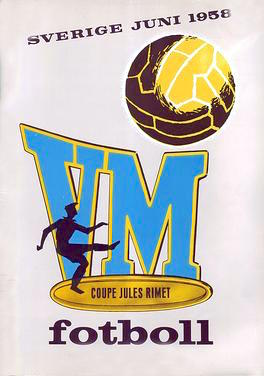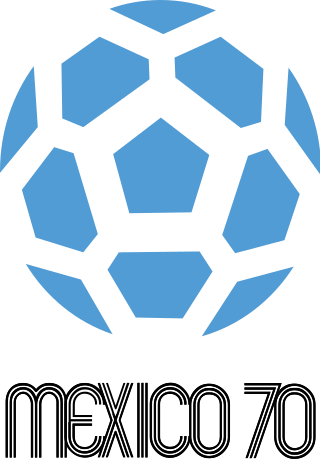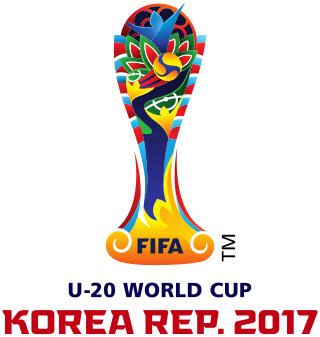Table
| Pos | Team | Pld | W | D | L | GF | GA | GR | Pts | Qualification | | | | |
|---|---|---|---|---|---|---|---|---|---|---|---|---|---|---|
| 1 | 4 | 3 | 0 | 1 | 9 | 3 | 3.000 | 6 | Qualification to 1958 FIFA World Cup | — | 2–0 | 3–1 | ||
| 2 | 4 | 2 | 0 | 2 | 6 | 5 | 1.200 | 4 | Drawn for CAF/AFC–UEFA play-off | 1–0 | — | 4–1 | ||
| 3 | 4 | 1 | 0 | 3 | 5 | 12 | 0.417 | 2 | 1–4 | 2–1 | — |
The three teams in this group played against each other on a home-and-away basis. The group winner Czechoslovakia qualified for the sixth FIFA World Cup held in Sweden.
Wales were drawn to play against Israel in a special play-off.
| Pos | Team | Pld | W | D | L | GF | GA | GR | Pts | Qualification | | | | |
|---|---|---|---|---|---|---|---|---|---|---|---|---|---|---|
| 1 | 4 | 3 | 0 | 1 | 9 | 3 | 3.000 | 6 | Qualification to 1958 FIFA World Cup | — | 2–0 | 3–1 | ||
| 2 | 4 | 2 | 0 | 2 | 6 | 5 | 1.200 | 4 | Drawn for CAF/AFC–UEFA play-off | 1–0 | — | 4–1 | ||
| 3 | 4 | 1 | 0 | 3 | 5 | 12 | 0.417 | 2 | 1–4 | 2–1 | — |
| Wales | 1 – 0 | |
|---|---|---|
| Vernon | Report |
| East Germany | 2 – 1 | |
|---|---|---|
| Wirth Tröger | Report | M. Charles |
| Czechoslovakia | 2 – 0 | |
|---|---|---|
| Daniel Kraus | Report |
| Czechoslovakia | 3 – 1 | |
|---|---|---|
| Kraus Bubník Molnár | Report | Wirth |
| East Germany | 1 – 4 | |
|---|---|---|
| H. Müller | Report | Kraus Moravčík Novák |

The 2002 FIFA World Cup, also branded as Korea/Japan 2002, was the 17th FIFA World Cup, the quadrennial football world championship for men's national teams organized by FIFA. It was held from 31 May to 30 June 2002 at sites in South Korea and Japan, with its final match hosted by Japan at International Stadium in Yokohama. During the opening ceremony, the championship was declared opened by President of South Korea Kim Dae-jung.

The 1958 FIFA World Cup was the sixth FIFA World Cup, a quadrennial football tournament for men's senior national teams. It was played in Sweden from 8 to 29 June 1958. It was the first FIFA World Cup to be played in a Nordic country.

The 1962 FIFA World Cup was the seventh edition of the FIFA World Cup, the quadrennial international football championship for senior men's national teams. It was held from 30 May to 17 June 1962 in Chile. The qualification rounds took place between August 1960 and December 1961, with 56 teams entering from six confederations, and fourteen qualifying for the finals tournament alongside Chile, the hosts, and Brazil, the defending champions.

The 1970 FIFA World Cup was the ninth edition of the FIFA World Cup, the quadrennial international football championship for men's senior national teams. Held from 31 May to 21 June in Mexico, it was the first World Cup tournament held outside Europe and South America, and also the first held in North America. Teams representing 75 nations from all six populated continents entered the competition, and its qualification rounds began in May 1968. Fourteen teams qualified from this process to join host nation Mexico and defending champions England in the 16-team final tournament. El Salvador, Israel and Morocco made their debut appearances at the final stage.

The 1986 FIFA World Cup was the 13th FIFA World Cup, a quadrennial football tournament for men's senior national teams. It was played in Mexico from 31 May to 29 June 1986. The tournament was the second to feature a 24-team format. Colombia had been originally chosen to host the competition by FIFA but, largely due to economic reasons, was not able to do so, and resigned in November 1982. Mexico was selected as the new host in May 1983, and became the first country to host the World Cup more than once, after previously hosting the 1970 edition.

The 2014 FIFA World Cup was the 20th FIFA World Cup, the quadrennial world championship for men's national football teams organised by FIFA. It took place in Brazil from 12 June to 13 July 2014, after the country was awarded the hosting rights in 2007. It was the second time that Brazil staged the competition, the first being in 1950, and the fifth time that it was held in South America. Fans and pundits alike consider this edition of the World Cup to be one of the best ever held.

Nissan Stadium, a.k.a. the International Stadium Yokohama, is a multi-purpose stadium in Yokohama, Kanagawa Prefecture, Japan, which opened in March 1998. It is the home stadium of Yokohama F. Marinos of the J1 League.
The three teams in this group played against each other on a home-and-away basis. The group winner England qualified for the sixth FIFA World Cup held in Sweden.
The three teams in this group played against each other on a home-and-away basis. The group winner France qualified for the sixth FIFA World Cup held in Sweden.
The three teams in this group played against each other on a home-and-away basis. The group winner Austria qualified for the sixth FIFA World Cup held in Sweden.
The three teams in this group played against each other on a home-and-away basis. The group winner Scotland qualified for the sixth FIFA World Cup held in Sweden.
The three teams in this group played against each other on a home-and-away basis. The group winner Hungary qualified for the sixth FIFA World Cup held in Sweden.
The three teams in this group played against each other on a home-and-away basis. The group winner Northern Ireland qualified for the sixth FIFA World Cup held in Sweden.
The three teams in this group played against each other on a home-and-away basis. The group winner Yugoslavia qualified for the 1958 FIFA World Cup held in Sweden.
The three teams in this group played against each other on a home-and-away basis. Poland and the Soviet Union finished level on points, a play-off on neutral ground was played to decide who would qualify. The winner Soviet Union qualified for the sixth FIFA World Cup held in Sweden.

The 2013 FIFA U-20 World Cup was the nineteenth edition of the FIFA U-20 World Cup, since its inception in 1977 as the FIFA World Youth Championship. It ran from 21 June to 13 July 2013. At the FIFA Executive Meeting in Zürich on 3 March 2011, Turkey beat other bids to host the series games, from host competition by the United Arab Emirates and Uzbekistan. In its bid, Turkey suggested the use of thirteen stadiums in ten of its cities, before deciding in February 2012, that seven cities would play host to games.

The 2015 FIFA U-20 World Cup was the twentieth edition of the FIFA U-20 World Cup since its inception in 1977 as the FIFA World Youth Championship. The competition took place for the first time in New Zealand, the third time on Oceanian soil after Australia staged the 1981 and 1993 editions. A total of 52 matches were played in seven host cities.

The 2017 FIFA U-20 World Cup was the 21st edition of the FIFA U-20 World Cup, the biennial international men's youth football championship contested by the under-20 national teams of the member associations of FIFA, since its inception in 1977 as the FIFA World Youth Championship. The tournament was hosted by South Korea from 20 May to 11 June 2017.
The 1958 FIFA World Cup qualification for North, Central America and the Caribbean serves as the preliminary tournament for the region. Six teams entered the tournament to compete for one place in the final tournament.
The 1958 FIFA World Cup qualification for Asia and Africa served as the preliminary tournament for the region. The winner of the tournament went on to face a European team in an Inter-confederation play-off. For an overview of the qualification rounds, see the article 1958 FIFA World Cup qualification.